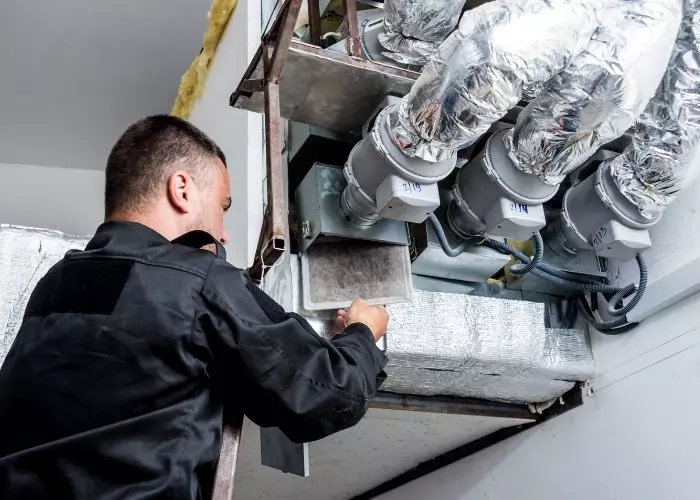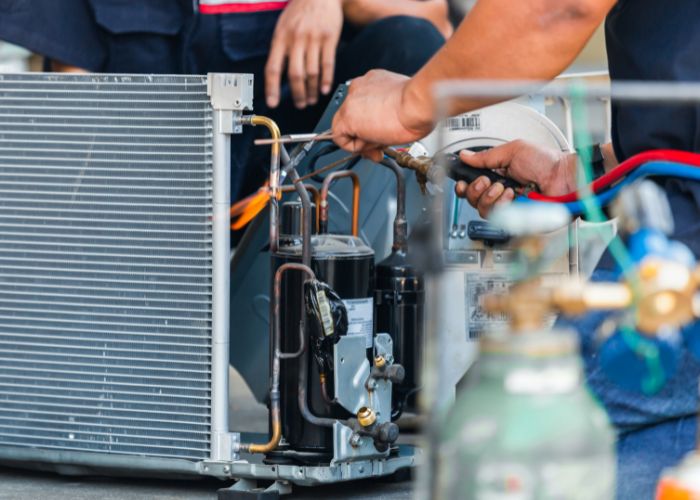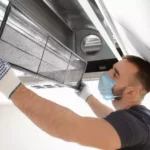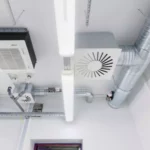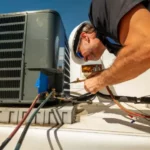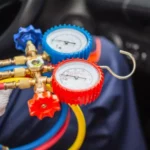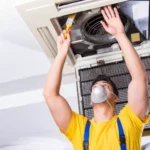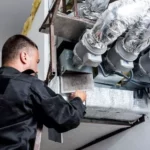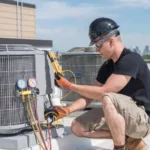HVAC (Heating, Ventilation, and Air Conditioning) systems form the backbone of modern indoor environments, providing optimal comfort and air quality in residential, commercial, and industrial settings. To ensure these systems function at their best, proper installation, regular maintenance, and prompt repairs are essential.
However, accomplishing these tasks efficiently demands a comprehensive set of specialized tools. In the following sections, we will delve into the key tools indispensable for HVAC professionals. Equipped with these tools, they can expertly address heating, cooling, and ventilation challenges, guaranteeing the satisfaction of occupants in any space they serve.
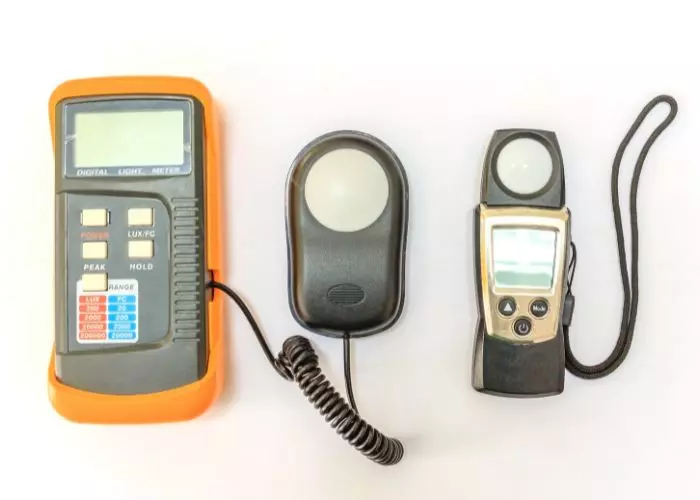
Tools Needed for HVAC: Measuring Instruments
Accurate measurements are paramount in HVAC work as even slight variations can impact system performance. HVAC technicians utilize an array of measuring instruments, including digital thermometers, hygrometers, and pressure gauges. These tools allow them to assess temperature, humidity, and pressure levels accurately.
By obtaining precise measurements, technicians can calibrate heating and cooling systems to operate at peak efficiency. Additionally, during troubleshooting, these instruments aid in identifying anomalies, and this help to guide technicians towards potential issues and ensuring precise adjustments for optimal performance.
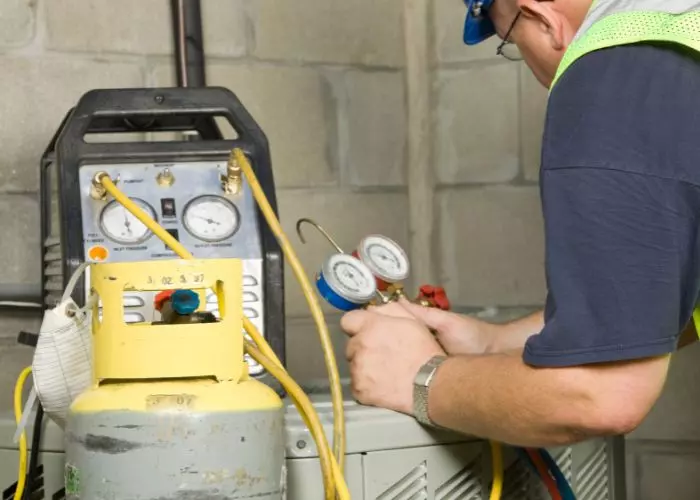
Refrigerant Recovery Equipment
Handling refrigerants safely is crucial for both environmental and regulatory compliance. Refrigerant recovery equipment is an absolute necessity for H V A C professionals. Recovery machines effectively extract refrigerants from air conditioning and refrigeration systems, preventing harmful emissions into the atmosphere.
These machines ensure that refrigerants are properly stored and recycled, reducing environmental impact. By employing such equipment, HVAC technicians actively contribute to environmental conservation efforts while maintaining the safety and efficiency of HVAC systems. This responsible approach helps protect the ozone layer and mitigate greenhouse gas emissions.
Hand Tools
HVAC professionals rely heavily on an assortment of versatile hand tools that aid them in a wide range of tasks. Screwdrivers of various sizes and types assist in removing panels and tightening connections. Wrenches provide the necessary torque to fasten or loosen nuts and bolts securely.
Pliers come in handy for gripping and maneuvering small components. Tubing cutters efficiently slice through pipes, allowing precise adjustments and repairs. These essential hand tools empower HVAC technicians to carry out installations, repairs, and maintenance with zgreat ease and precision.
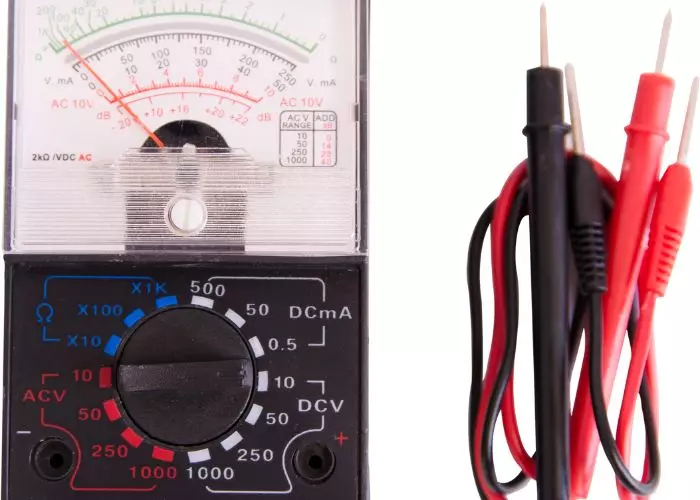
Electrical Testing Devices
Modern HVAC systems incorporate complex electrical components, necessitating the use of specialized testing devices. Multimeters enable technicians to measure voltage, current, and resistance, providing vital information about the electrical health of various system elements. These precise measurements aid in diagnosing issues accurately and ensuring proper functioning.
Voltage testers confirm the presence or absence of electrical charge, ensuring safety during maintenance. Circuit analyzers help diagnose faults in the electrical circuits, expediting the troubleshooting process. By utilizing electrical testing devices, HVAC professionals can accurately assess and address electrical issues, ensuring the smooth operation of HVAC systems.
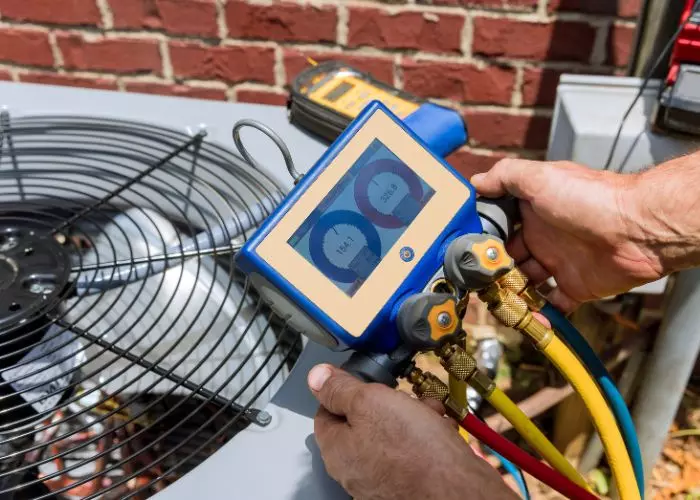
Leak Detection Tools
Refrigerant leaks can undermine the efficiency and performance of HVAC systems while also posing environmental risks. To combat this, HVAC technicians rely on advanced leak detection tools. Electronic leak detectors can identify even tiny leaks in refrigerant lines and components, enabling quick repairs.
UV dye kits add a fluorescent dye to the refrigerant, which becomes visible under UV light, making it easier to pinpoint leaks. By detecting and repairing leaks promptly, HVAC professionals help conserve energy, reduce operating costs, and minimize environmental impact. Learn here another topic about HVAC.
Frequently Asked Questions
Why are measuring instruments crucial for HVAC professionals?
Measuring instruments are essential for HVAC professionals as they allow accurate assessments of temperature, humidity, and pressure levels in HVAC systems. These precise measurements enable technicians to calibrate systems, troubleshoot issues effectively, and ensure optimal performance and comfort for occupants.
How does refrigerant recovery equipment benefit HVAC technicians?
Refrigerant recovery equipment is crucial for HVAC technicians as it enables safe handling and proper extraction of refrigerants from air conditioning and refrigeration systems. This equipment ensures compliance with environmental regulations by preventing harmful emissions. Additionally, it facilitates the proper storage and recycling of refrigerants, reducing environmental impact.
What role do hand tools play in HVAC tasks?
Hand tools are indispensable for HVAC professionals as they assist in a wide range of tasks. Screwdrivers, wrenches, pliers, and tubing cutters enable technicians to tighten connections, fasten nuts and bolts, grip and maneuver components, and make precise adjustments during installations, repairs, and maintenance.
Why do HVAC technicians need electrical testing devices?
HVAC systems incorporate complex electrical components, making electrical testing devices essential for technicians. Multimeters, voltage testers, and circuit analyzers allow technicians to measure voltage, current, resistance, and diagnose electrical issues accurately. These tools help ensure the proper functioning of motors, capacitors, and other electrical parts.
How do leak detection tools contribute to HVAC efficiency?
Leak detection tools are critical for HVAC efficiency as they identify refrigerant leaks in pipes, coils, and other system components. By detecting and repairing leaks promptly, HVAC technicians prevent energy wastage and reduce operating costs. Optimal refrigerant levels lead to improved system performance, lower environmental impact, and higher customer satisfaction.
Conclusión
Having the right tools at their disposal is absolutely critical for HVAC professionals to provide exceptional services. Measuring instruments, such as digital thermometers and pressure gauges, allow them to precisely analyze and calibrate HVAC systems. Refrigerant recovery equipment ensures safe handling and compliance with environmental regulations.
Essential hand tools like screwdrivers and tubing cutters aid in installations and repairs. Electrical testing devices help diagnose and rectify electrical issues effectively. Leak detection tools locate and fix refrigerant leaks, optimizing system efficiency. By investing in high-quality tools and staying abreast of the latest advancements,





